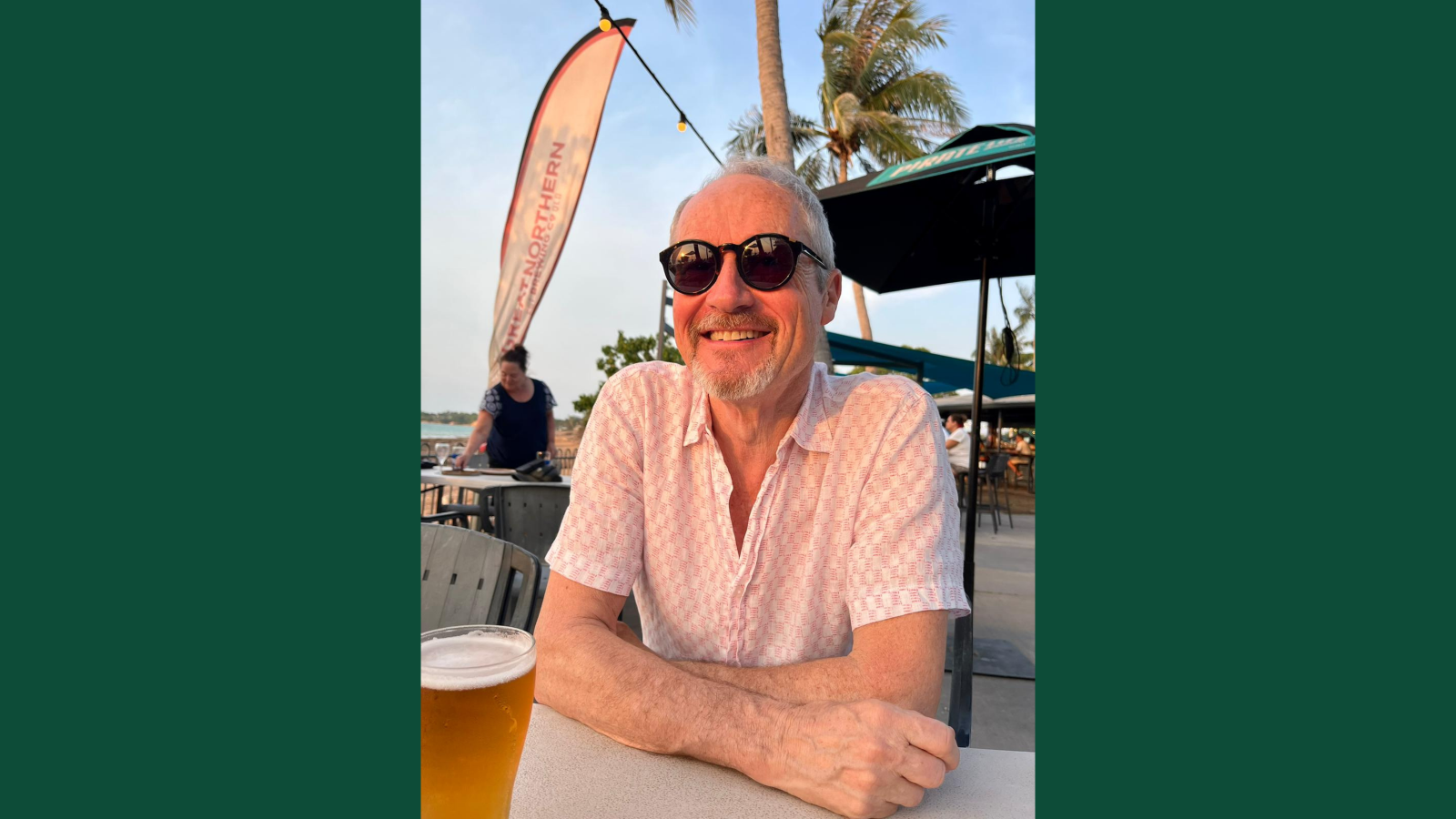
“Applied linguistics, or applied language studies, is fascinating,” Professor Macalister says. “It helps you to appreciate the importance of language in every aspect of our lives. How we shape our identities, how we convey our identities, how we value other people. There’s just so much—it’s a very broad field.
“I think also it helps you appreciate diversity. You’re endlessly broadening your horizons; it makes you think about things you wouldn’t otherwise think about. I mean, without language, what are we?”
Professor Macalister describes himself as an “accidental academic” who started his academic career later in life after teaching English as a second language overseas.
“One thing that struck me when I came back to New Zealand in the nineties was that there were a lot more words and phrases being used that I was not familiar with.” This observation led to Professor Macalister’s PhD thesis from Te Herenga Waka—Victoria University of Wellington which looked at the presence of Māori words in New Zealand English.
In 2004 Professor Macalister joined the School of Linguistics and Applied Language Studies at Te Herenga Waka as a staff member, becoming Head of School from 2011 to 2015, and was then awarded a professorship in 2017. He was also the first Associate Dean (International) for the Faculty of Humanities and Social Sciences.
“A big part of applied linguistics and a big language-related problem in the world is how people learn languages—speaking foreign languages in particular,” Professor Macalister says. His academic career saw him teaching, researching, and publishing in the areas of language teaching and language learning. His impressive scholarship ranges across learning and teaching research in areas such as curriculum development, teaching reading, language policy, professional development, teacher education, study abroad, and multilingualism.
Professor Macalister has published six books in these areas, including three volumes with Emeritus Professor Paul Nation that were published by Routledge. His Dictionary of Māori Words in New Zealand English was published by Oxford University Press in 2005. He co-authored a book with Robert Blackwood published by Bloomsbury on multilingualism and linguistic landscapes in 2020, and has published numerous peer-reviewed journal articles in academic and practitioner journals.
His interest in New Zealand English and te reo Māori has informed his work. Looking at world language varieties led him to language policy and the area of linguistic landscapes, which looks at how language is used in public space and what it means.
“As a contemporary example, many government departments have te reo Māori names front and foremost. That tells us something about how the language is used and valued in society.
“But in a year’s time all those government departments are going to have the English name first. So what’s this telling us about the value attached to the language, the speakers of the language, the attitudes towards speakers of those languages? When you look at how Māori words have been used and changed over time you get snapshots of how the country has changed and developed and evolved.
“So linguistic landscape research is a way of getting insights into how languages work and are valued in society.”
Professor Macalister was awarded a VUW Research Excellence Award in 2011 and is a sought-after speaker who has delivered innumerable keynotes, workshops, guest lectures, and served on panels at conferences both face-to-face and online.
His contributions to hautūtanga in his school, faculty, and the wider university are exemplary, and his contributions to international growth and engagement in the school and faculty are of particular note. He was instrumental in developing important international agreements with institutions in the Asia-Pacific which have seen many international students come into programmes in TESOL and applied linguistics at Te Herenga Waka.
“Professor John Macalister is an outstanding colleague, teacher, teacher educator, researcher, mentor, administrator and supervisor,” says Professor Averil Coxhead, Head of School, School of Linguistics and Applied Language Studies.
“His international outreach, network building skills and knowledge of the Asia-Pacific region have benefitted the School of Linguistics and Applied Language Studies, the Faculty of Humanities and Social Sciences and the University greatly.
“John’s strong sense of social justice and dedication to teaching and learning are exemplary. We’re delighted with the award of Emeritus Professor for John because it means we will continue to learn from him and enjoy his company too.”
Professor Macalister has been an active member of the Applied Linguistics Association of Aotearoa, serving as President from 2010 to 2014, and currently as Treasurer. He has organised a number of international conferences at Te Herenga Waka, has been a council member for Volunteer Service Abroad, and is a member of the Executive Board of the Extensive Reading Foundation, an international non-profit association promoting extensive reading for language learning. He was co-editor of Reading in a Foreign Language and was editor of the New Zealand English Journal from 2005 to 2011, and he also serves on the editorial boards of a number of key journals in his discipline.
